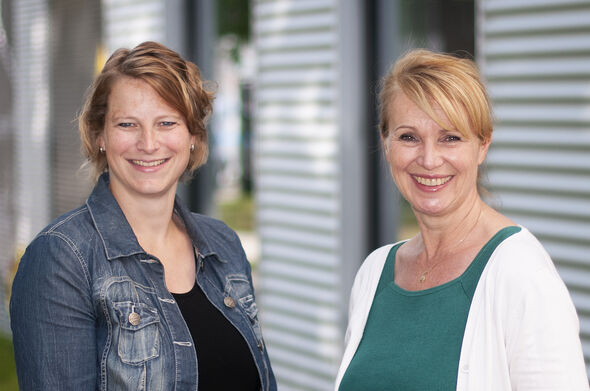When you’re desperately needed, but fail at job interviews
Graduates with an engineering degree often have ample jobs to choose from. Still, not everyone manages to find employment, which is why Fontys and TU/e jointly launched Career Jumpstart. If you’re unsuccessful at job interviews because you have ASD, AD(H)D, or suffer from persistent fear of failure, coaches will help you find a job that’s right for you. “And they’ll help you keep that job,” says Kim Pril, coordinator on behalf of TU/e.
Career Jumpstart will continue as a pilot until the end of this year, after which it will hopefully become a regular part of the coaching trajectory for students. The project is a collaboration between Fontys University of Applied Sciences ICT and TU/e’s departments of Applied Physics, Electrical Engineering and Mechanical Engineering.
“But TU/e students from other departments are welcome to sign up too,” Kim Pril of the Career Academy says. She has some coordinator responsibilities on behalf of TU/e, but the actual coaching takes place at Fontys, under supervision of job coach Marlou Heskes and lecturer-researcher Manon Krabbenborg.
So far, twenty graduates have started a coaching trajectory, including three graduates from TU/e. Career Jumpstart is aimed at students with support needs. These can arise from a disability – such as ASD or AD(H)D – or for example from an acquired brain injury (ABI), or from severe fear of failure or a chronic disease.
Small talk
Approximately 90 percent of registrants have an autism spectrum disorder, Heskes estimates. “1 percent of the population has ASD, but among students at the Fontys ICT program, that number is between 15 and 18 percent.” The number of TU/e students with ASD has not been officially recorded.
“Highly educated people with a disability are three times more likely than average to remain unemployed, and that number is even more dramatic among people with ASD,” Heskes says. There’s a broad range of reasons for that. “A small example: candidates with ASD often don’t have a talent for small talk. When an HR officer wants to break the ice and asks them: ‘Did you manage to find the place?’ their answer will be: ‘Of course, I’m here aren’t I?’”
Employers
People with ASD also have a hard time ‘selling themselves.’ They often fail to make a connection with the HR officer sitting across the table. ASML, for example, has said that they consider it a problem that their recruiters don’t always know how to pick the special talents, Heskes says, even though the company is desperately looking for tech talent. This is the reason why the ASML Foundation finances the pilot together with 04werkt.
In other words: Career Jumpstart doesn’t just help applicants, but employers as well. If they decide to recruit applicants with a support need, Career Jumpstart will help them find the right matches for their vacancies, and they in turn will invest in a more inclusive workplace.
Read on below the photo
Employers approach Heskes and Krabbenborg and their team for advice on how to become more ‘autism friendly.’ Krabbenborg: “One advice we give, for example, is to match a newcomer in the workplace with a buddy.”
Coaching
And what does that coaching trajectory for students entail exactly? It differs from case to case, but the goal is always the same: to find a job for graduates and to ensure that they stay employed. Heskes: “We don’t just coach during the employment process, but we also identify the needs of a candidate in the workplace, so that he or she will be able to function properly.”
That is why each trajectory starts with an extensive intake. If necessary, a sensory profile will be drawn up, which identities a candidate’s sensitivity to certain stimuli. That intake will serve as the basis for a customized approach.
In some cases, a coaching trajectory won’t take long – such as in the case of a student who approached Heskes simply to provide him with some action points with deadlines, because he knew that was the only for him to take action. He managed to find a job quickly thanks to that list. But other trajectories take much longer and are much more complicated. In those cases, other bodies might also provide help.
Nominated
The three coordinators are proud of the fact that their project is nominated for the Bridge of Fame Award, which was presented on April 21. Krabbenborg: “It is an award for best practices that help students with a support need make the transition to the labor market.” Heskes: “We are super happy. The prize went to a great, similar initiative in Nijmegen, WerkLab, but we have been showered with compliments and we have been able to make interesting contacts.”
Are you a student with a support need and would you like to receive coaching to help you find a job? Visit the Career Jumpstart website (not yet in English unfortunately), or send a message at careeracademy@tue.nl, with 'Career Jumpstart' as subject.




Discussion